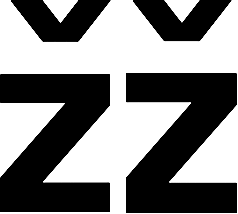- Past • An Introduction to the Problem
Želimir Žilnik on Film, Communism, and Former Yugoslavia
Who can know what is in the past? Is it what historians can tell us? Should we also trust what we can remember? Past • An Introduction to the Problem proposes that the problem of the past now concerns everyone. Visions of a different, brighter future defeated in the Cold War and its heated afterlives, we are being offered the past as the only horizon of possibility. And what are we supposed to find in that past? Philosopher Boris Buden considers these questions in a series of essays and conversations with filmmaker Želimir Žilnik, one of the most prominent filmmakers of the “Black Wave” of 1960s socialist Yugoslavia. A child of communists and an internationally successful young artist using resources available to all in the socialist state, Žilnik remains a constant critic of political systems that seek to curb artists’ reflections on the world being built. Treating Žilnik as a rare witness of a past for which his work is uncommon documentation, this book asks crucial questions about ways we can know the past, how it informs our experience and defines our sense of possibility.
- Želimir Žilnik. Shadow Citizens
Exhibition
October 24, 2020–April 18, 2021, Kunsthalle Wien
Curators: What, How & for Whom / WHW (Ivet Ćurlin, Ana Dević, Nataša Ilić and Sabina Sabolović)
Assistant curator: Laura Amann
With contributions by Ana Janevski and Jurij Meden
- Želimir Žilnik, Shadow Citizens
Shadow Citizens offers an insight into the radical film praxis and extensive oeuvre of filmmaker Želimir Žilnik (b. 1942, based in Novi Sad, Serbia) within the exhibition context. From his beginnings in the lively amateur film scene of Yugoslavia in the 1960s, Žilnik has gone on to make more than fifty films, including a number of feature films and TV productions, often in the genre of docudrama. He received international recognition early on, winning the Golden Bear for Best Film at the 1969 Berlin International Film Festival for Early Works. In the 1970s his films encountered political opposition, and he left Yugoslavia for Germany, where he realized several independent films, including some of the earliest films dealing with the topic of guest workers. In the 1980s, after leaving Germany—due to his films once again facing political opposition and censorship—and returning to Yugoslavia, he made numerous TV and feature films through which he portrayed early symptoms of the country’s growing social conflicts, continuing in the 1990s with films dealing with the maladies of the post-socialist transition as well as questions of migration.
- Želimir Žilnik, Shadow Citizens
Galerija Nova, Teslina 7, Zagreb
22/11/2018 - 02/02/2019
Thursday 22/11/2018 at 19h exhibition opening
Curated by: What, How & for Whom/WHW - An introduction to the past
"This is not a book about the past. It is an introduction to a problem called the past."
Book title: Introduction to the Past
The book was realized by: Boris Buden, wrote the essays and
conducted a conversation with Ž. Žilnik
Želimir Žilnik, answered to B. Buden's questions, verbally and in writing format
kuda.org, book initiators - edited, redacted and coordinated
Žiga Testen, graphic designer - gave the final form of the book - For an Idea – Against the Status Quo
For an Idea – Against the Status Quo - Analysis and Systematization of Želimir Žilnik's Artistic Practice is an attempt to create a research platform dedicated to the problematic relationship between Žilnik's artistic engagement and political and social environment of his work from the beginning of 1967 to present. The versatile material in front of you is a starting point for further analysis, valorisation and systematization of Žilnik's cinematographic work.
